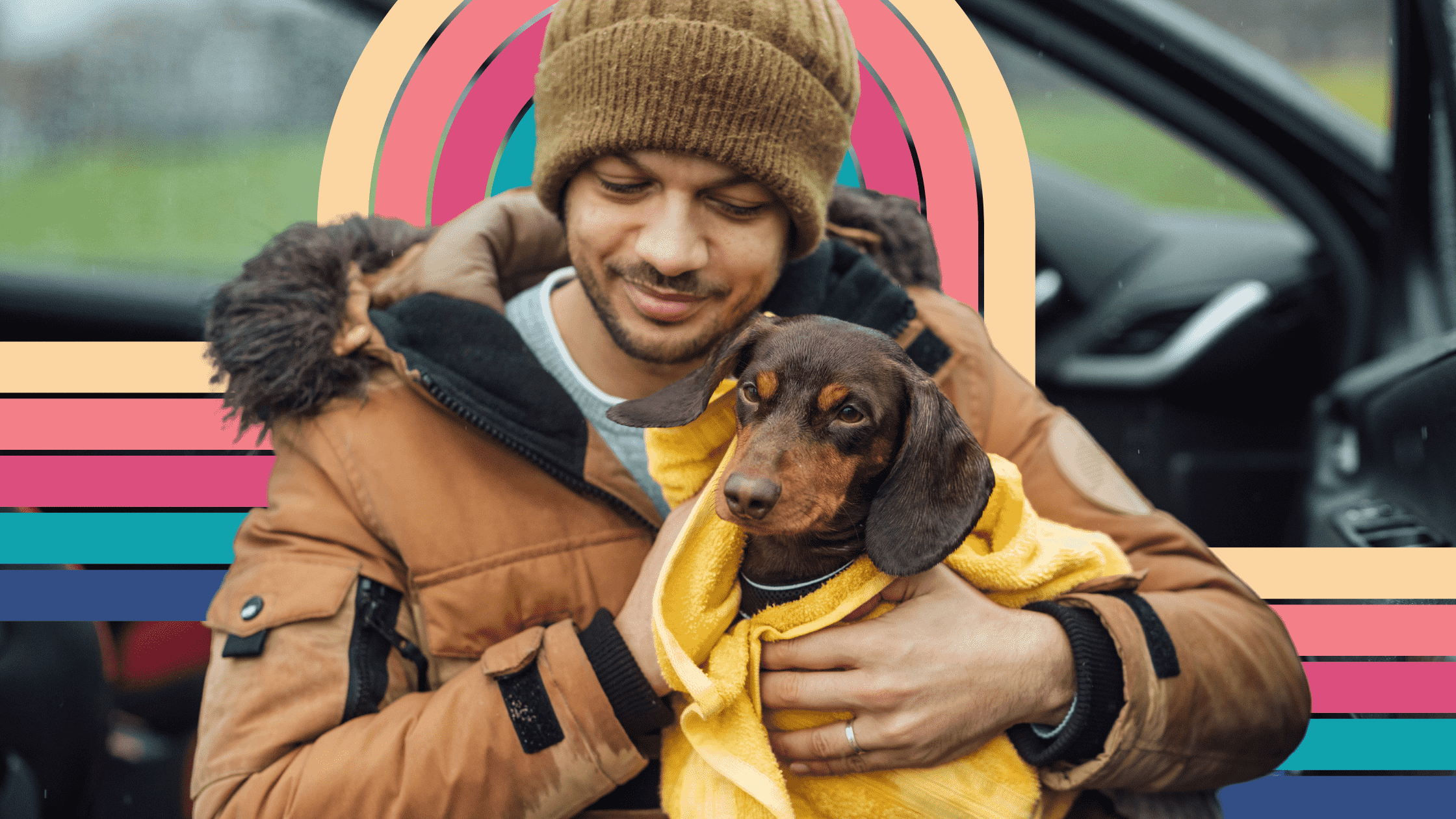
By: Ann K. Avery, MD, Infectious Disease Physician at MetroHealth Medical Center
If you’ve made the decision to get a dog, then you might be asking yourself some logistical questions. 🤔 Is my house big enough? Do I have access to a park? Am I active enough for a dog to enjoy living with me? Is my dog active enough for me? 😴

These are the questions every new dog owner thinks through, but for those living with HIV there’s a bigger question: Can dogs get HIV? 🤯 Read on for some great news, a basic background on what HIV even is, and how having a dog comes with amazing benefits. 💗
Wait, what even is HIV?
HIV is short for human immunodeficiency virus (emphasis on the word human 🫂, but we’ll return to that later). It’s a virus; once someone gets it, they have it for life. Now that might sound scary, but medicine is amazing, and people living with HIV today can live perfectly normal lives! 🤗
That’s because there are antiretroviral drugs (ART) that lower the viral load in the body to an undetectable amount. If someone living with HIV takes their medication as prescribed, they can’t transmit HIV to other people through bodily fluids or sex! 🎉 Of course other medications can help with managing or preventing HIV (such as PrEP), but the main takeaway is that people living with HIV can go through life worry-free, as long as they’re on meds. 👍
Can dogs get HIV?
The easy answer is: Nope, they can’t. 🥳 That’s where that ‘human’ part of HIV comes in. Research from the Centers for Disease Control and Prevention (CDC) found zero evidence for dogs, cats, or non-primate animals being able to get HIV or transmit it to other people. 😲
That’s because when HIV is outside the body it’s super fragile, so it doesn’t last long and can’t directly transfer from people to dogs, or vice-versa. Cool, huh? 🔬
Awesome, so I can relax?
About HIV, sure! But do keep in mind that while animals can’t get HIV, there are still other things that can make them sick. ?? Just like humans, animals have immune systems, and they’re impacted by illnesses, too. They can develop other autoimmune disorders: pneumonia, constant infections, a persistent flu, or even rheumatoid arthritis, amongst other conditions.
If you’re worried about your pet, general things to look out for in our furry friends are:
- Being super tired
- Not eating
- Extreme laziness
- Coughing
- Sneezing
- Fevers
- Diarrhea
Other than that, you’re pretty much good to go! 🐕 Feed them well, give them pets, plenty of exercise, and take them to the vet regularly to make sure they’re in tip-top shape.
Why would I get a pet?
Well, because they’re adorable?!
Besides this obvious fact, there are even scientific reasons backing up why having pets is an awesome idea. 😉

Believe it or not, studies show having a dog lowers feelings of depression. This is super important, especially for people with HIV. There is a real burden that comes along with HIV’s stigma, and unfortunately, depression is common. Luckily, pets can help! 👏
Plus, if your mental health stays in tip-top shape, it’s also likely that you’ll take your medication on time, will stay in contact with friends, and will feel better about yourself. We’ve written a lot about the importance of caring for our mind, body, and spirit, and having a dog or other pet can make a huge difference. 🧠
Pet owners are out there
Okay, so no need to worry about HIV when it comes to pets, and it’s clear that they have all sorts of benefits. What else you should know before getting a pet? 🐶 We’ve written about that here, with tips on which pets will fit your lifestyle (maybe you like to run, maybe you’re a homebody, maybe you want to cross the country riding an animal; all of these factors will affect the decision you make). We’ve also covered the costs that come into play and more! 💸
If you’re still unsure about pets and HIV, or have any other pressing questions, there’s a community that might be able to help. If you have HIV and are between the ages of 13-34, the Positive Peers app is just for you. After going through the registration process, you can connect with other young people in the same situation. Who knows… maybe you’ll run into a fellow pet lover!
